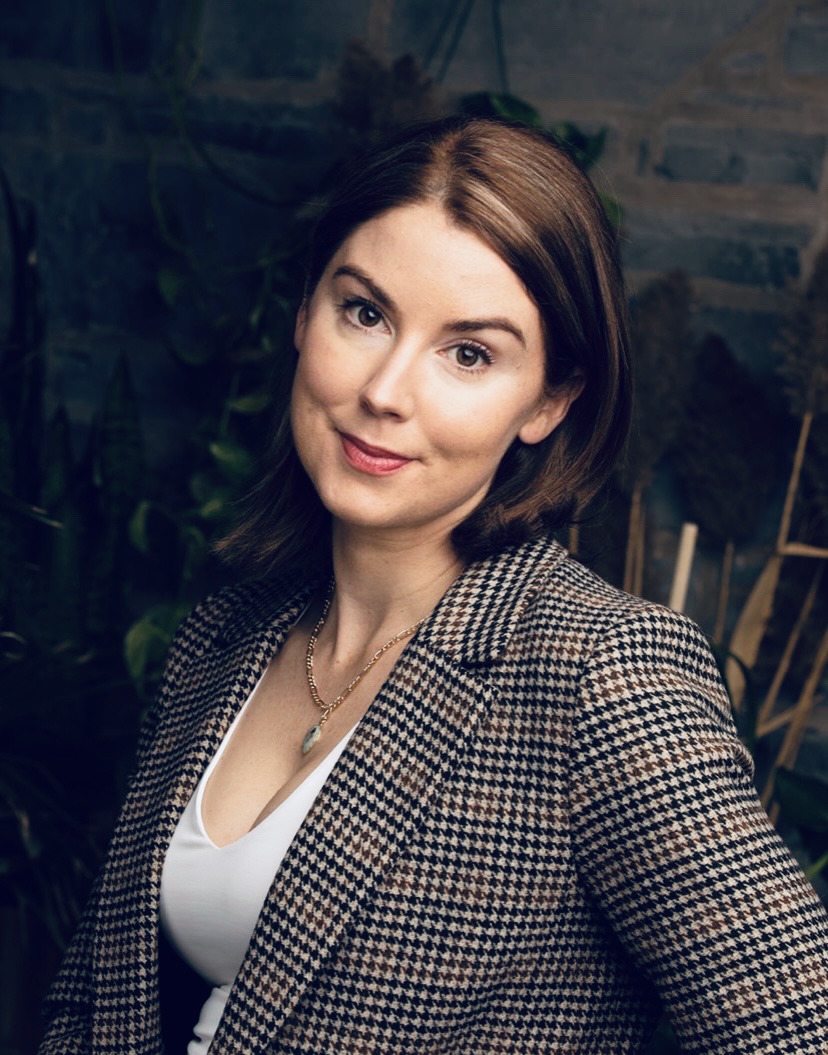 Coming out of her Bachelor of Education, Alice Johnston, PhD’23, was seeking work. The job market was tough and she was advised to look north.
Coming out of her Bachelor of Education, Alice Johnston, PhD’23, was seeking work. The job market was tough and she was advised to look north.
“I’m so glad I did,” she said. “I was nervous to leave my community behind, but I met lifelong friends and became familiar with an amazing new community. It was life changing for me.”
Alice moved over 3,500 kilometres north from Toronto, where she completed her Bachelor of Education, to La Loche, Saskatchewan, where she taught in a northern Dene community for three years. She followed that up with two years in Saskatoon also at schools primarily serving First Nations and Métis students.
Her experiences motivated Johnston to work toward addressing systemic issues in Canada’s ‘Eurocentric school system’ in order to create more equitable outcomes. She started looking for doctoral programs.
“I chose Queen’s because I was really interested in the work of my supervisor, Lindsay Morcom, who is focused on language revitalization,” Alice, who is now Dr. Alice Johnston, said.
Upon arriving at Queen's, Alice, who is a settler scholar, initially envisioned a research project focused on the impact of land-based learning in the Northern Saskatchewan community where she had previously taught. However, as she developed her ideas, met new contacts, and experienced challenges like the COVID-19 pandemic, an opportunity to shift her research focus arose at the Queen's University Biological Station.
Alice, with Lindsay’s guidance, helped to create a project focusing on land-based learning materials called the Queen's University Indigenous Land-based Learning STEM (QUILLS) program. This initiative provides valuable resources, such as videos, for grade 7 to 10 learners which emphasize the centering Indigenous knowledge in science education. QUILLS was funded through the Natural Sciences and Engineering Research Council of Canada Promoscience program.
“These grants are intended to produce educational materials and opportunities to help students pursue education in STEM (science, technology, engineering, and math),” said Alice. “Lindsay provided me with so many opportunities that expanded my learning and professional portfolio, and encouraged me to apply to facilitate this grant.”
The job required Alice’s attention full-time, which meant aligning her research with the development and impact of the land-based learning materials on institutions including Queen’s itself.
Alice’s research is grounded in participatory action research and Indigenous research methodologies. She conducted a deep exploration of her own research journal, case study reviews of significant STEM programs across Turtle Island (what Indigenous communities call North America), and research sharing circles, adapting traditional Indigenous practices to an online format to examine the question of how to bring together western and Indigenous and western STEM knowledge equitably.
“I held these research sharing circles online with those who created QUILLS materials with me, individuals identified as teacher experts from the Limestone District School Board (LDSB), and STEM faculty who contributed research studies to our materials,” she said. “It unfolded during COVID and it was difficult to hold these circles online while maintaining the holistic component of these circles, especially as a non-Indigenous person. I received a lot of guidance from community members and from Indigenous knowledge keepers and Elders to ensure it was done in a good way.”
Alice then took these discussions and her journal notes and turned them into an ‘Indigenous storywork’ approach, a type of narrative that brought together an autobiography and Medicine Wheel teachings she received from Indigenous knowledge keeper, and member of the Queen’s Education community, Deb St-Amant, as well as the seven Sacred Grandfather teachings (humility, bravery, honesty, wisdom, truth, respect, and love).
“In considering the Four Directions of the Medicine Wheel, I looked to the east to consider styles of relating, student emotional well-being and how it relates to STEM – something that is not really looked at,” she said. “I also looked south in thinking about the reciprocity between students and land in land-based education, to the west to consider how holistic learning and spirituality is included in STEM, and to the north where we look at reconciling STEM knowledges especially in powerful western institutions.”
She observed that existing efforts to include Indigenous perspectives sometimes fall short as it might sometimes be limited to a ‘two-eyed seeing’ exercise in one part of one class, which doesn’t achieve overall balance. Alice’s research notes a need for the teacher, researcher, or practitioner to be active in advancing Indigenous contributions and perspectives to the work.
These days, Alice is teaching full-time at the LDSB in Kingston and is a part of the board’s Indigenous education team. She is seeking to remain in academia in some capacity going forward.
Alice encourages aspiring scholars considering Queen's University for their doctoral education to embrace the unique opportunities graduate studies offer, including the privilege of working alongside deeply committed experts.
“Graduate school provides you the opportunity to choose that one thing you care the most about and focus on that with the people in the world who know the most about it,” she said. “I’ve felt so alive and awake in the last six years. If you have a question you need to answer...graduate studies is a gift.”
PhD Alum Profile: Alice Johnston - Finding a balance in STEM
Phil Gaudreau - Feb 07, 2024